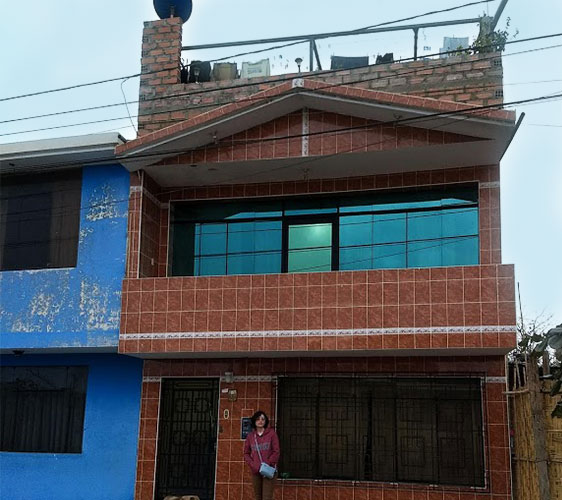Overview
During the Late Intermediate Period (A.D. 1000-1400) the Chimú, a militaristic empire on the Peruvian coast, conducted a series of expansions conquering the Lambayeque to the north and the Casma to the south. While past research has viewed conquered groups as static and passive receptors to foreign influence, current research suggests that locals respond in multiple ways based on their own worldviews, agendas, and values. This project focuses on examining how the Casma in the Nepeña valley responded during and after Chimú conquest and how these responses allowed them to persist. Since 2017, the project directors have excavated at the Casma settlement of Pan de Azúcar de Nepeña to examine Casma-Chimú interactions and how local elites reacted to Chimú conquest. Pan de Azúcar de Nepeña consists of a large fortified adobe stepped platform that is surrounded by 13 mounds and a large necropolis. Participants will gain excavation skills through uncovering elite Casma and Chimú material culture and intact buried buildings in the mounds, as well as excavating burials in the necropolis to examine Casma-Chimú interactions. Participants will also gain basic ceramic, textile, and skeletal analysis skills. Students will stay in a field house located in the hospitable town of Nepeña. Aside from excavation and laboratory analysis, participants will learn about Peruvian prehistory through lectures and field trips, one of which will be overnight in the beach town Huanchaco to visit Chan Chan and Huacas de Moche.
Instructors
The directors welcome emails and inquiries about the research elements of this project. More general information (tuition, health insurance, and payment schedule) can be found under the ‘Students’ tab above. Any further questions may be addressed to IFR staff. Additional details about research, course schedule, travel, accommodation, and safety can be found on the syllabus. Contacting the directors or the IFR office is encouraged and appreciated. It may help you determine if this field school is a good fit for you.
Testimonials
This is a new IFR field school. No student testimonials are available at this time.
Tuition Includes:
- Cost of Instruction
- Cost of Academic Credit Units
- Room & Board
- All local transportation
- Health & Evacuation Insurance
Student Fees
This program requires an online application — there is no fee to submit an application. Once admitted, a payment of the nonrefundable deposit fee is required to secure a place in the program(s). The Tuition balance (total program cost minus the deposit fee) must be paid prior to the Tuition deadline as listed above under “Course Details.” A $200 late fee will be added to all accounts not paid in full by the Tuition deadline.
Early Decision Enrollment (Nov 1, 2019 through Jan 10, 2020): A reduced, nonrefundable $300 deposit fee is required to secure a seat in the program. This deposit is part of the total Tuition and NOT in addition to it.
Regular Enrollment (Jan 11, 2020 through payment deadline): A nonrefundable $500 deposit fee is required to secure a seat in the program. This deposit is part of the total Tuition and NOT in addition to it.
Late Enrollment (payment deadline forward): A nonrefundable $600 deposit fee is required to secure a seat in the program. In addition, a $200 late fee will be added to all accounts not paid in full by the Tuition payment deadline.
Withdrawal & Cancellation Policy: If you paid the deposit fee but did not cancel your participation by the Tuition payment deadline, you are legally responsible for the full Tuition regardless of attendance at any IFR program. Please carefully read our Withdrawal & Cancellation Policy for further information.
Credit Card Processing Fee: A 2.5% processing fee is automatically incurred for all credit/debit card/online payments.
Academic Credit Opt Out: Students who wish to participate in an IFR field school without earning academic credit units may do so and receive the following discounts: $300 off a full program (4 or more weeks in length) or $200 off a short program (2-3 weeks in length).
Trip Cancellation Insurance: The IFR does not provide trip cancellation insurance. Read this Wall Street Journal article about travel insurance — it may help in making a decision whether such insurance is for you. If you do wish to purchase such insurance, Insure My Trip or Travel Guard are two possible resources you may wish to explore.
Accommodations
Students will be housed in a large three-story, fully furnished field house in Nepeña, a small town that is 30 minutes away from Chimbote on the coast. Bedrooms are double-occupancy and are designated male and female. There are two shared bathrooms with heated showers. The kitchen is fully stocked and is available for students to use. There is no WiFi at the house. Breakfast, lunch, and dinner will be provided Monday to Saturday. Lunch will be provided and delivered in the field. On Sundays, students are on their own for food, which there are multiple options for food, including cooking at the house and restaurants in Nepeña. The project’s cook is able to accommodate celiac disease, lactose intolerance, food allergies, and those who are vegetarian. Specialized diets such as keto and vegan are difficult to accommodate. Drinking water will also be provided as well as is available for personal purchase in Nepeña.

Travel Info
We suggest you hold purchasing your airline ticket until six (6) weeks prior to departure date. Natural disasters, political changes, weather conditions and a range of other factors may require the cancelation of a field school. The IFR typically takes a close look at local conditions 6-7 weeks prior to program beginning and make Go/No Go decisions by then. Such a time frame still allows the purchase deeply discounted airline tickets while protecting students from potential loss if airline ticket costs if we decide to cancel a program.
Students will arrive in Peru on the first day of their session (Session 1: June 7 / Session 2: July 5) through the Jorge Chávez International Airport in Lima. As most international flights arrive around midnight it will be important that participants leave the day before, so they are arriving on the start date. Participants will be met at the airport by one of the field school directors where they then will travel to the Flying Dog Hostel in Miraflores, Lima.
If you missed your connection or your flight is delayed, please call, text or email project director immediately. A local emergency cell phone number will be provided to all enrolled students.
VISA REQUIREMENTS
Students must have a valid passport with at least six-month validity and at least two empty pages to enter Peru. Participants must also have a return or onward ticket when entering the country.
Citizens of other countries are asked to check the embassy website page at their home country for specific visa requirements.
Student Safety
The IFR primary concern is with education. Traveling and conducting field research involve risk. Students interested in participating in IFR programs must weigh whether the potential risk is worth the value of education provided. While risk is inherent in everything we do, we do not take risk lightly. The IFR engages in intensive review of each field school location prior to approval. Once a program is accepted, the IFR reviews each program annually to make sure it complies with all our standards and policies, including student safety.
Students attending IFR international programs are covered by a comprehensive Health Insurance policy that includes physical illness or injury, mental or chronic conditions. No deductible and 100% of costs are covered up to $250,000. In addition, we provide Political and Natural Disaster Evacuation policy, which allow us to remove students from field school location if local conditions change. Our field school directors are scholars that know field school locations and cultures well and are plugged in into local communities and state institution structures.
Students attending IFR domestic programs (within the US) must have their own health insurance and provide proof upon enrollment. IFR field school directors are familiar with local authorities and if in need of evacuation, local emergency services and/or law enforcement will be notified and activated.
The IFR has strong, explicit and robust policy towards discrimination and harassment in the field. If students feel they cannot discuss personal safety issues with field school staff, the IFR operates an emergency hotline where students may contact IFR personnel directly.
Call us at 877-839-4374 or email us at info@ifrglobal.org if you have questions about the safety of any particular program.










